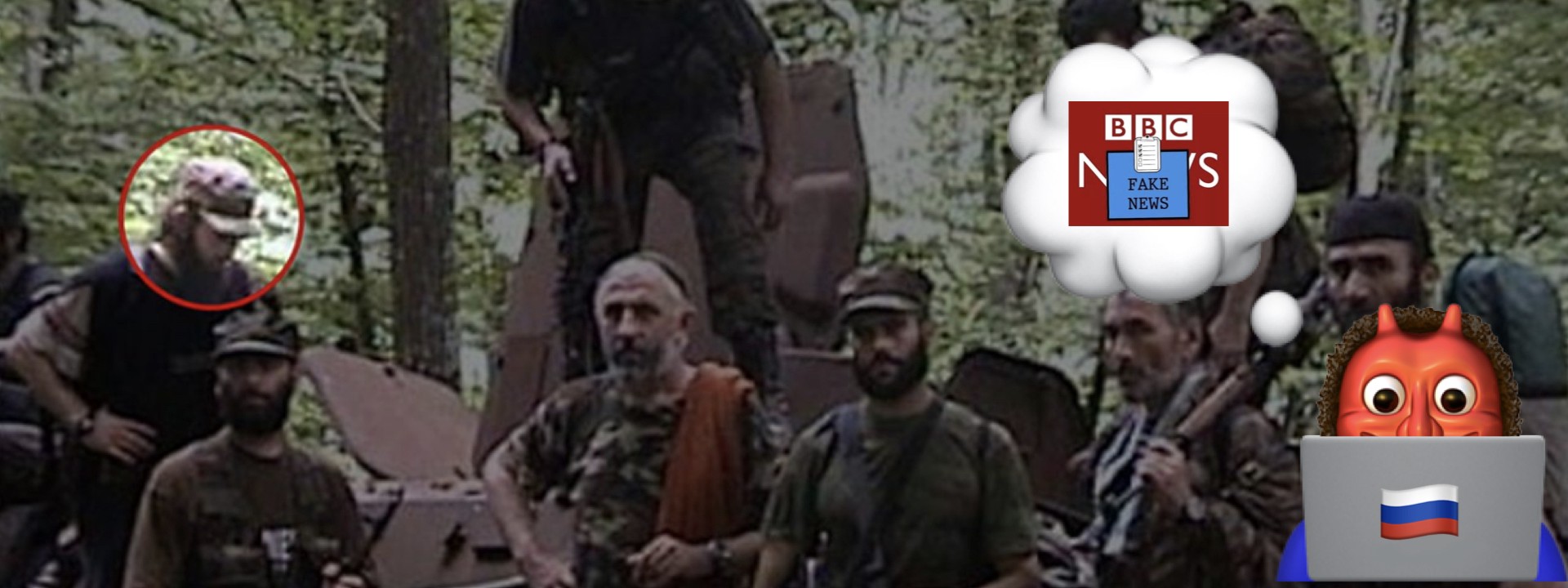Pro-Kremlin sources target the BBC for report on murdered Chechen commander
Russian officials, news sites, and social network users accused the BBC of glorifying Zelimkhan Khangoshvili
Pro-Kremlin sources target the BBC for report on murdered Chechen commander

Russian officials, news sites, and social network users accused the BBC of glorifying Zelimkhan Khangoshvili

The BBC’s coverage of the murder in Berlin of former Chechen commander Zelimkhan Khangoshvili struck a nerve with Russian actors intent on turning the narrative away from the likely culprits of the assassination: Russia.
On September 19, 2019, BBC News Russian published an investigation into the circumstances around Khangoshvili’s murder. Khangoshvili, an ethnic Chechen in possession of a Georgian passport who was a veteran of the Second Chechen War, was murdered on August 23, 2019, in broad daylight in Berlin’s city center. The official German investigation has yet to deliver its final assessment of the case, but on September 27 Bellingcat provided open-source investigative evidence that suggested the Russian state backed Khangoshvili’s assassination.
While the international community continued to search for clues as to the identity and motive of the assassin, multiple Twitter and VKontakte (VK) accounts along with fringe pro-Kremlin websites unleashed a disinformation campaign against BBC, denouncing its coverage as a “Western conspiracy against Russia” and branding Khangoshvili “a terrorist.” This type of reaction — e.g., blaming the West, pushing conspiracy theories and misleading or fabricated narratives — is the modus operandi for the Kremlin. For example, when assassins linked to Russian intelligence attempted to poison former spy Sergei Skripal in the United Kingdom, the Kremlin similarly spread disinformation to obscure the truth of the case.
Twitter accusations
On September 18, nearly a month after the murder, BBC Russian published a story titled, “Shots in the center of Berlin. The life and death of a Chechen field commander.” The story included interviews with Khangoshvili’s wife and brother.

The BBC’s Moscow extension subsequently promoted the story on Twitter.
Выстрелы в центре Берлина. История жизни и смерти чеченского полевого командира https://t.co/EnjpQ4Cmhh
— bbcrussian (@bbcrussian) September 19, 2019
Soon after the story went live, several Twitter accounts quoted it, accusing the BBC of supporting the “terrorist Khangoshvili,” and included a screenshot of a different BBC Russian Twitter post other than that currently available on the outlet’s Twitter feed. It is unknown whether the tweet in the screenshot was of a tweet that had been removed by BBC Russian or whether it was fabricated. In this “differing screenshot,” the news outlet allegedly referred to Khangoshvili as “fearless, fair, and honest.” One of the accounts provided a link to the BBC’s tweet, but the tweet was unavailable.
https://twitter.com/wwwkisulkenru/status/1174607498336186368
"Бесстрашный, справедливый и честный" — именно такими эпитетами BBC описывает чеченского террориста Зелимхана Хангошвили, имевшего связи с Исламским государством pic.twitter.com/owUYW9yDfc
— Д///ИХАД (@tvjihad) September 19, 2019
The differing screenshot showed the BBC tweeting, in Russian: “‘Fearless, fair, and honest — nobody needs such people. Luckily, he was one of those people and that is why they removed him.’ A month ago, in the center of Berlin, a Chechen field commander was shot dead. The BBC learned the details of the incident.” BBC Russian’s available tweet, however, reads in Russian, “Shots in the center of Berlin. The life and death of a Chechen field commander.”

Regardless of whether the differing screenshot was fabricated, neither it nor the available tweet provided any indication of the BBC’s feelings toward Khangoshvili, as the Twitter accounts claimed; instead, the words being used were those of Khangoshvili’s wife, who the outlet was quoting.

In misrepresenting a quote as the media outlet’s sentiment, the conversation became dominated by a manufactured scandal.
Accusations move to Russian social media and fringe sites
A day later, the differing screenshot started to spread on Russian social network VK as well as on fringe pro-Kremlin sites.

Many VK accounts spread the same narrative alongside a photo of the BBC logo stamped with “fake news,” accusing the BBC of supporting and glorifying the “terrorist Khangoshvili.” The accounts also shared other ironic posts suggesting that, if someone is an enemy of Russia and dies a violent death, that person automatically becomes “fearless, fair, and honest” and must have been assassinated by “Petrov and Boshirov” — a reference to the suspects in the Skripal poisoning case.
The posts also claimed that British media falsely presented Khangoshvili as a freedom fighter and that a symmetric response from Kremlin-owned outlet RT would have been to publish a story about the “fearless, fair, and honest” Irish Republican Army (IRA), referring to the paramilitary organization designated as a proscribed terrorist group in the United Kingdom.
The same narratives appeared on fringe pro-Kremlin sites.

Shortly after the circulation of the story on Russian social networks and sites, a lesser-known Russian news outlet Riafan.ru reported on a comment by Frants Klintsevich, a member of the Russian Federation Council’s Committee on Defense and Security, in which he accused the BBC of being the weapon of Western intelligence services and openly supporting and sympathizing with terrorists.
Twitter accounts, Russian VK accounts, and fringe pro-Kremlin websites were all involved in spreading the narratives targeting the BBC over its story on Khangoshvili. The multi-platform nature of the content may have allowed the narratives to reach a pool of Russian speakers with more diverse news consumption habits than if it had spread on one platform alone.
Follow along for more in-depth analysis from our #DigitalSherlocks.

